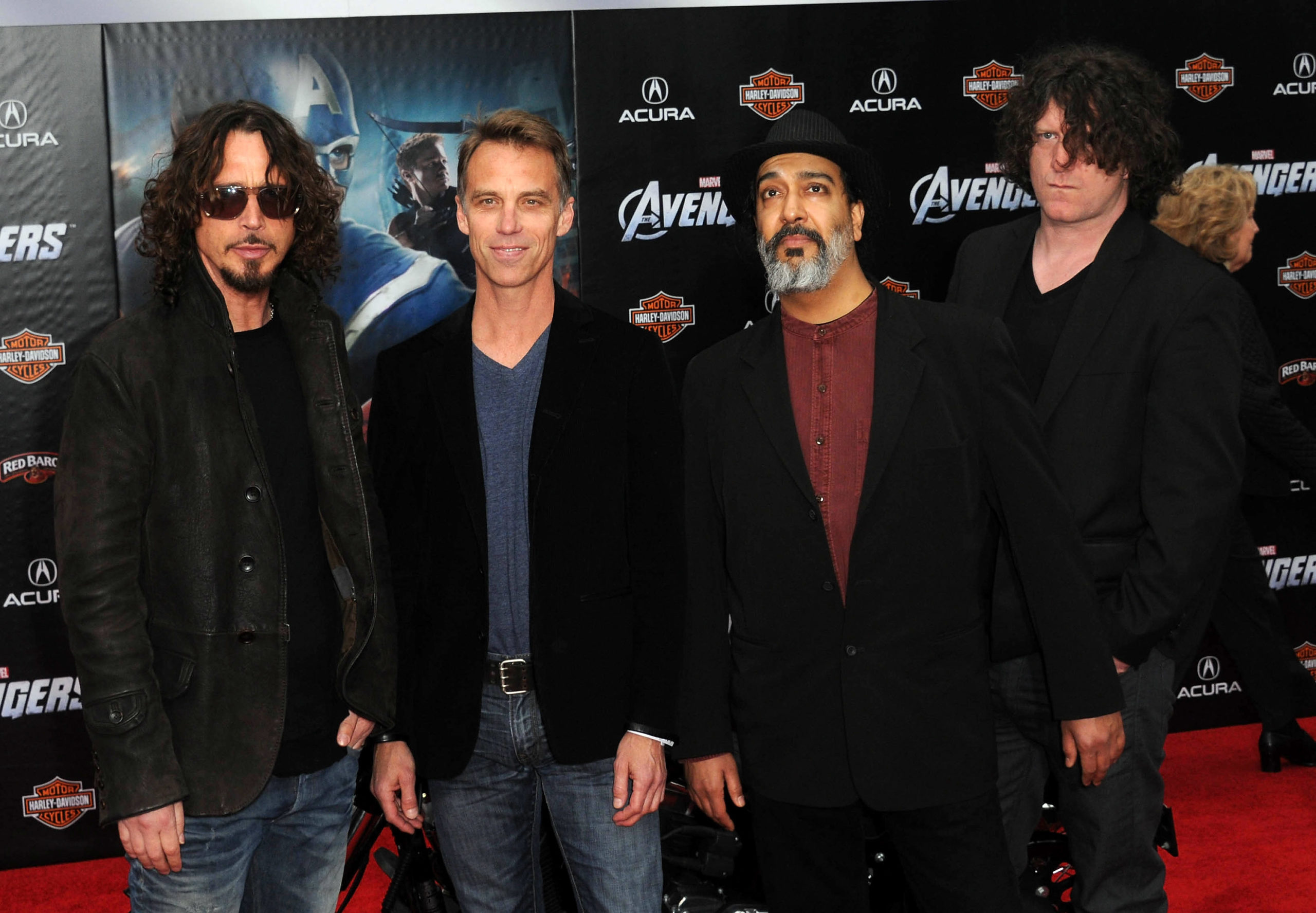Release Date: September 18, 2015
Label: Universal Music Enterprises
Six years later, Chris Cornell has been willing to do just about anything to help people forget his ill-conceived, Timbaland-produced rock’n’B gaffe Scream. Though he’s now taken to calling that record “great” again, he’s used the intervening period to remove himself from that blessed mess. He released a record of acoustic reinterpretations of his earlier songs. He reunited Soundgarden, the sludgy quartet that brought him to fame; Temple of the Dog, the proto-Pearl Jam one-off that gave him his biggest hit; and Mad Season, another grunge supergroup that he… didn’t really have all that much to do with the first go around.
https://youtube.com/watch?v=KhJ9IwYc5NU
Most of those collaborations were relegated to a parade of live performances, but the Soundgarden reunion album King Animal righted a fair number of Scream‘s wrongs by using Kim Thayil’s scruffy guitar work to fill the holes in Cornell’s moth-eaten vocals. Cornell went big, heavy, and nostalgic in the wake of a record whose radio-grabbing experimentation threatened to tarnish his legacy. With Higher Truth, he’s done pretty much the exact opposite of all of that and turned in he’s turned in 12 tracks of heavily orchestrated and unbearably sincere acoustic pop, territory that he hasn’t touched since the late ’90s.
But even from the tin can strings of the opening “Nearly Forgot My Broken Heart,” it’s quickly clear that these lands are as unconquerable for Cornell as Scream‘s head-scratching bedroom jams. If, as the title suggests, this is Cornell’s attempt at transcending this mortal coil and aiming for life’s grand unspeakables, then the earthbound mundanity of the instrumentation isn’t helping him attain liftoff. The dusty paths of forlorn acoustic guitars and swooning strings are well-trod, even by Cornell himself. And the relative locomotion offered by producer Brendan O’Brien (who’s manned the boards similarly MOR releases by Pearl Jam and AC/DC in recent years), isn’t enough to make this trek a particularly engaging one.

Also Read
Every Soundgarden Album, Ranked
Cornell’s always been his best working in abstract hobo/boho couplets, whether foggily exploring foreign cities or reducing addictions down to their gross bodily impacts. The beauty in his lyricism has always been in that nauseating tangle, a disorienting quality where you never know quite what he’s talking about but it feels right anyway. So when he spits out lines like “Time ain’t nothing if it ain’t fast / Taking everything that you ever had” (on “Before We Disappear”), it sits strange on the stomach — you expect a bit of a challenge that never comes.
He’s dealing with heavy subjects here: loss, mortality, the inevitable passage of time. But Cornell only tries to talk about these ideas directly, by naming names — the musical theater’s approach to mind/body philosophy. The conclusions that Higher Truth offers are Kantian, that these things in themselves are unknowable, and you start to wish that instead of another brokenhearted ballad, Cornell would try to find any other way to grapple with this existential weight than head-on. Sartre couldn’t do it in less than 600 pages, why could you, dude?
There are, however, moments scattered throughout Higher Truth that suggest Cornell’s search for meaning could have had different ends. His voice always threatens to carry even the clunkiest lyrics, so when he’s reduced to sheer desperation (as on “Through the Window,” where he’s able to sway on sheer pathos if nothing else), it’s a veritable London Bridge of downtrodden emotions that he’s trying to sell; and as his revisionist history of Scream suggests, well, the curly-locked singer can sell anything. Higher Truth feels presented like the old man coming down from the mountain, instrumental clarity used as a clarion to announce the arrival of wisdom and hope. But instead he’s like the rest of us, Michelangelo’s Adams straining for something bigger than ourselves, and the answer is always just out of reach.




